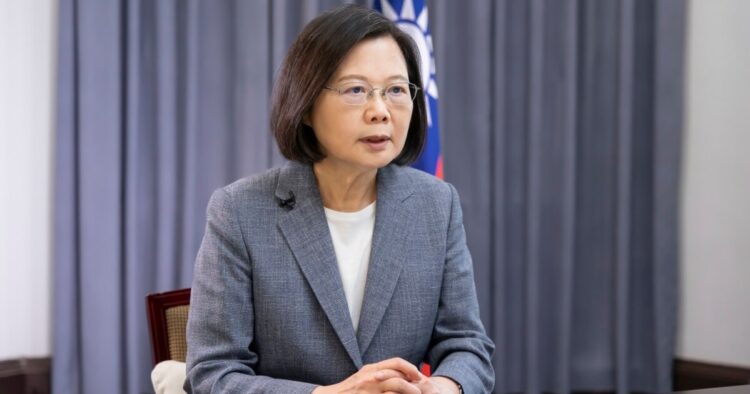Taiwanese President Tsai Ing-wen, the leader of the Democratic Progressive Party (DPP), cast her ballot in the presidential election at Xiulang Elementary School in New Taipei City. Accompanied by vice presidential candidate Hsiao Bi-khim and party officials, Tsai encouraged early voters, highlighting the significance of citizens shaping the country’s future through their democratic right.
Tsai emphasized the importance of carrying necessary documents for registration, including a national ID and chop (stamp). She urged citizens to actively participate in the democratic process, stating that a single vote can determine the country’s direction. Taiwan’s voters will choose the next president in an election held every four years.
The three major presidential candidates also cast their votes earlier in the day. Lai Ching-te of the DPP voted in Tainan, Ko Wen-Je of the Taiwan People’s Party in Taipei, and Hou Yu-ih of the Kuomintang in New Taipei City. The election not only determines the president and vice president but also 113 legislators, including district lawmakers, Indigenous lawmakers, and legislators-at-large.
With 70% of the 19.5 million voters registered, polling stations, primarily located in schools, opened at 8 a.m. and will close at 4 p.m. The age group of 40-49 dominates the electorate, comprising 19.88%, followed by 50-59-year-olds at 18.06%. The 20-29 age group has around 2.84 million eligible voters participating in the election.
The world is closely watching Taiwan as tensions with China escalate. Beijing’s threats have intensified over the past eight years, raising concerns globally. The election results and Taiwan’s response are eagerly anticipated, emphasizing the geopolitical significance of this democratic exercise.
As Taiwan undergoes this electoral process, it is a crucial moment for the island nation, both internally and on the international stage. The citizens’ choice will not only shape the leadership of the country but also send signals about the island’s stance amidst the challenges it faces from its authoritarian neighbor.

















Comments